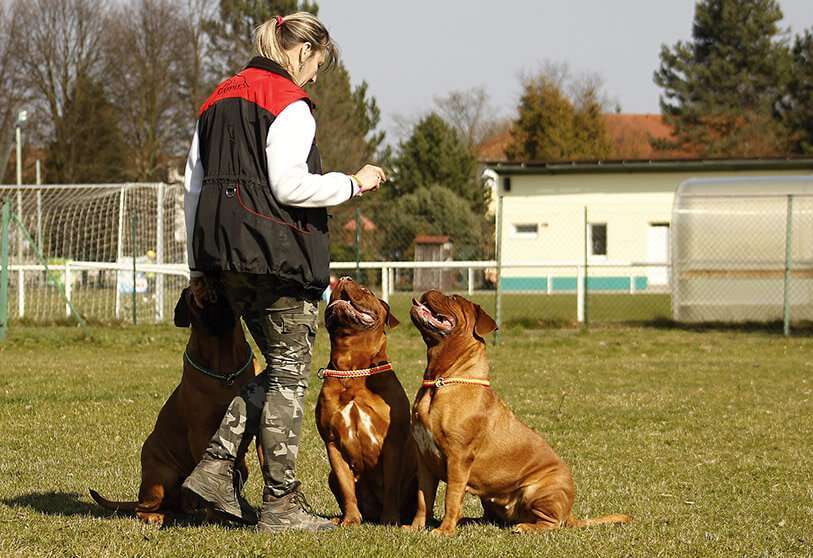The underground economy in the illegal sale and breeding of puppies

The economic fraud that arises around the illegal breeding of puppies in Spain is an underground economy activity to be monitored at present, due to the high volume that it moves and also to other illicit activities that it entails in its environment.
The legal framework in this respect has fallen short in this respect, as it does not establish clear limits when it comes to delimiting the way in which a person can engage in puppy breeding as an economic activity, and most of those who do so are not considered to be engaged in such an activity. Therefore, it is necessary to make an effort at the legal level to promote the elimination of these behaviours and their implementation in regulated environments.

The considerable increase in the number of Spanish households that own a pet, specifically dogs, has drawn attention to behaviours that have always been carried out and which, nevertheless, nowadays are particularly important due to the activity they represent.
It is not unusual for us to see and know someone who breeds puppies of certain highly demanded breeds and sells them for a high price; nevertheless, it is necessary to carry out an analysis of these activities, since, although they are carried out as an everyday occurrence, we must not forget that they represent an illegal activity.
Furthermore, it is necessary to examine the two aspects involved: on the one hand, the person carrying out the activity is evading his tax and social security obligations, thereby committing fraud; on the other hand, there are no health guarantees for the breeding of animals or for the person acquiring them.

At the legal level, article 13 TFEU establishes that animals are sentient beings, without making a distinction in relation to the existing species. This exception is used by those who use puppies for their own benefit and as a lucrative activity, without observing the minimum legal and sanitary guarantees.
The analysis and containment of tax fraud and the shadow economy are at the top of the political agendas of today's governments. However, the boundaries are not clear as to what is to be understood as fraud and what activities should be included in the black economy. Specifically, the study on the illegal breeding of puppies in Spain is an activity that is carried out and accepted as commonplace without considering whether or not it can constitute tax fraud as understood at other levels and also whether it is part of what is considered to be the underground economy.
Illegal trafficking networks for certain breeds of puppies that are usually in high demand and are very expensive and difficult to obtain are not the same as the person who, faced with a litter of their pet, decides to give the puppies as gifts to acquaintances. The question lies, therefore, in the dedication and above all the objective of the activity, as soon as it reaches a considerable economic value and is carried out with a profit motive, which are the requirements for it to be considered as an economic activity.

In relation to the illegal breeding of puppies, it is particularly difficult to establish figures that are close to reality, as there is a real black market that generates millions of euros per year that are not declared to the Treasury and which represent a considerable loss for the State and therefore for the public, for the public, as we must not forget that any activity of this type, apart from being illegal, is an uncivil act by those who carry it out, in terms of the conditions in which the animals are kept and also because it generates wealth that is not declared, with the consequent loss for the public as a whole.
Thus, with this Royal Decree, the registration of all domestic animals is required and the Register will be generally accessible to public administrations and security forces, which will allow a more agile process and also greater control.

Law 5/1997 of 24 April 1997, on the protection of pets, already established the prohibition of breeding and commercialisation of animals without the permits and licences established. In addition, each Autonomous Community develops its legislation according to its needs, thus demanding its own requirements.
At European level, the Animal Protection Convention regulates in its article 8, the trade, breeding and keeping for commercial purposes and animal shelters, where requirements are established and the obligation to declare this activity to the authority is established, whenever it is dedicated to the trade or breeding for commercial purposes of pets.
In addition, it is estimated that almost 50% of the dog trade is illegal, due to the continuous demand for puppies of specific breeds at prices well below the estimated price and which come from Eastern Europe and arrive in Spain in non-recommendable sanitary conditions. Furthermore, the failure of the passport system that was intended to be imposed has not helped to reduce or eliminate this activity.

The trade is now focused on the Internet, where we can find multiple pages selling puppies, sometimes camouflaged as something legal and others directly putting a price, without offering any guarantee.
The Guardia Civil's Telematic Crimes Unit, together with the National Police and the AEAT, are pursuing this type of conduct, fining some websites for the sale of second-hand goods between private individuals. The issue lies in being able to reach the individuals involved, so that a crime can be charged and it does not remain a mere administrative sanction.
In this regard, in 2017, a Joint Declaration of 5 European States (Belgium, Denmark, Germany, the Netherlands and Sweden) was presented to the European Commission requesting the adoption of effective measures to control and eradicate this illegal trade. The Declaration was presented to the European Platform on Animal Welfare.

In addition to the Member States, this meeting was attended by some EU institutions, NGOs and finally the private sector, where certain guidelines for action were adopted, including the creation of a specific working sub-group to deal with this issue. The main objective is to respect commercial freedom, but to establish a coordinated system in the EU that allows for a register of animal identification and also of breeding centres in order to put an end to the illegal trafficking of puppies.
Another issue related to this breeding is the economic fraud and swindling that has been occurring for some years and is currently being promoted by advertisements on the Internet.
Thus, the British Office of Business Ethics presented a 2017 study indicating that at least 80% of links for pet sales may be fraud. The scams are produced by criminal organisations operating from various countries, which makes it even more difficult to detect and arrest them, posting advertisements with images that do not correspond and providing telephone and account numbers where the income is made and that a few days later disappear or are not active and when the payment has already been made, hence the importance of verifying the site where you are browsing and that the online payment requirements are met.

Illegal breeding of puppies in Spain is a growing network, due to the increasing demand, which triggers more business; for this reason, it is necessary to advance in the legislation on the matter, in order to guarantee animal welfare and also to eliminate an illegal activity that generates high volume economic movements and lacks any administrative control whatsoever.
On the other hand, it is essential to raise social awareness in order to make it clear that these activities, although accepted in the past, are now increasingly rejected by society and that a change in the pattern of action is necessary, leading to the total regulation of the activity, as is the case with other economic sectors.

The crime of economic fraud also sometimes occurs under the cover of other criminal activities, concurring with money laundering and swindling by criminal organisations that engage in a variety of activities and expand their network across multiple countries, making early detection of economic fraud even more difficult.
BIBLIOGRAPHY
- Calvo, L. Presión fiscal vs. esfuerzo fiscal. (2014). Ecofinancial.
- El tráfico ilegal de cachorros en la UE, una triste historia perruna. Disponible en: https://www.nationalgeographic.es/animales/2017/11/el-trafico-ilegal-de-cachorros-en-la-ue-una-triste-historia-perruna
- Fraude fiscal y economía sumergida en España. Disponible en: https://economistasmurcia.org/coldata/upload/publicaciones/Gestion_61.pdf
- Ortolá Seguí, M. Los criaderos ilegales. Disponible en: https://catedraanimalesysociedad.org/animales-de-compania-cria-abandono-economia-sumergida-y-venta-fuera-de-control2/
JUAN FRANCISCO MARTÍNEZ OLMO, Sec2crime
CRIMINOLOGY DEGREE (UEMC)








